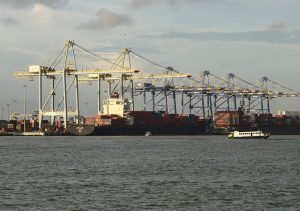
India’s Green Push for the Blue Economy : Harit Sagar Decoded
The Harit Sagar Green Port Guidelines 2023 aim to make India’s ports more sustainable and environmentally responsible. The framework encourages ports to adopt renewable energy, waste management, carbon neutrality, and ecosystem conservation measures while promoting economic growth through the Blue Economy. It emphasizes reducing the maritime sector’s carbon footprint via shore power use, electric vehicles, green hydrogen, and improved energy efficiency. The article highlights that successful implementation will require strong governance, technological innovation, and collaboration between government, industry, and local communities to balance maritime expansion with environmental protection.






